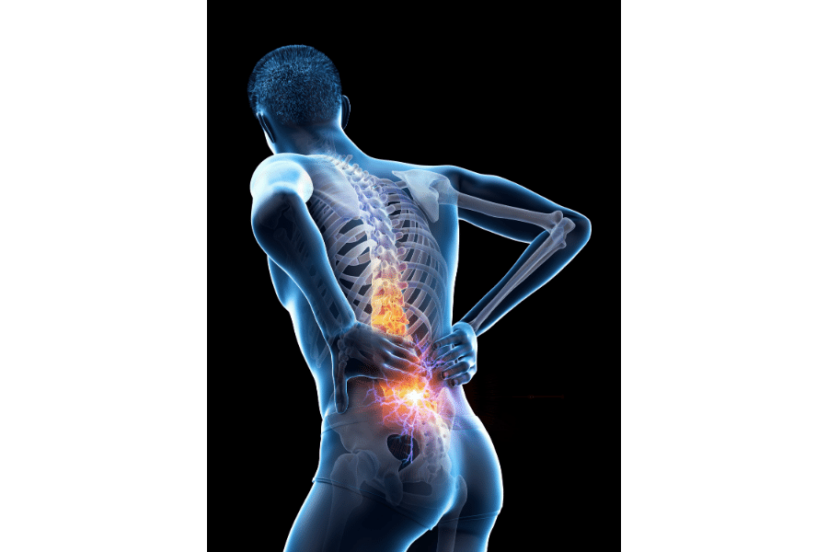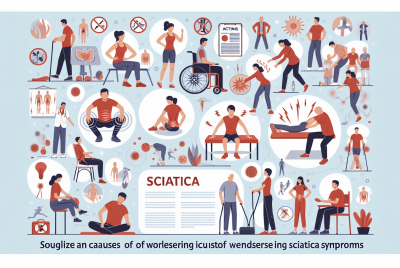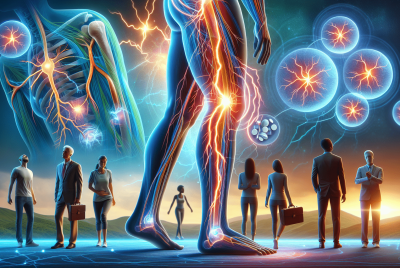Understanding Causes Of Back Pain 2023
Introduction:
Back pain is a common ailment that affects millions of people worldwide. Understanding Causes Of Back Pain is crucial for effective management and prevention. As a knowledgeable and experienced advisor having suffered chronic back pain myself, I will shed light on the many common causes I have come to know that may contribute to back pain and provide helpful and detailed explanations and reasons for each cause.
Anatomy of the back
To comprehend the causes of back pain, it’s essential to familiarize ourselves with the anatomy of the back. The spinal column, consisting of vertebrae, discs, and muscles, plays a vital role in providing support and flexibility. The vertebrae protect the spinal cord, while the discs act as cushions between the vertebrae. Muscles surrounding the spine help with movement and stability.
Causes of Back Bain:
Poor posture and muscle imbalances
One of the significant causes of back pain is poor posture, which places excessive strain on the back. Incorrect posture, such as slouching or hunching over a desk, can lead to muscle imbalances and tension. Over time, these imbalances can cause discomfort and pain in the back.
Sedentary lifestyle and lack of exercise
Our modern sedentary lifestyle, characterized by long hours of sitting and minimal physical activity, has a detrimental effect on our back health. Prolonged sitting weakens the back muscles and puts excessive pressure on the spine, leading to pain and discomfort. Regular exercise, particularly exercises that strengthen the core and back muscles, is crucial for maintaining a healthy back.
Herniated or bulging discs
Herniated or bulging discs are another common cause of back pain. Spinal discs act as shock absorbers between the vertebrae. When a disc becomes herniated or bulges out of place, it can put pressure on nearby nerves, causing pain, numbness, or tingling sensations.
Spinal abnormalities and conditions
Certain spinal abnormalities and conditions can contribute & may be another one of the causes of back pain. Scoliosis, a sideways curvature of the spine, can cause discomfort and strain on the back. Additionally, conditions like spinal stenosis (narrowing of the spinal canal) and spondylolisthesis (slippage of vertebrae) can also lead to back pain.
Trauma and injuries
Trauma and injuries resulting from accidents or sports activities can cause acute or chronic back pain. Strains, sprains, fractures, and disc injuries are common outcomes of such incidents. The impact on the back can vary depending on the severity of the injury.
Weight and obesity
Excess weight, especially around the midsection, can strain the back and lead to pain. The additional weight puts stress on the spine and can lead to conditions like herniated discs or muscle imbalances. Maintaining a healthy weight and adopting a balanced diet can help alleviate back pain caused by obesity.
Occupational hazards and repetitive stress
Certain occupations, such as those involving heavy lifting or repetitive movements, can contribute to back pain. Jobs that require frequent bending, lifting, or twisting put excessive strain on the back muscles and spine, increasing the risk of pain and injuries. This is the case with my own past experience having had a career in the construction industry as a tradesperson. Many years of heavy & repetitive lifting seemed to have taken a toll on my back.
Psychological factors
Psychological factors can also contribute to back pain. Stress and anxiety can cause muscle tension, leading to discomfort and pain in the back. Additionally, individuals with mental health conditions may experience heightened sensitivity to pain, exacerbating their back pain symptoms.
Aging and degenerative changes
As we age, our spine undergoes natural degenerative changes. The discs between the vertebrae lose moisture and elasticity, resulting in reduced shock absorption. Conditions like osteoarthritis can also develop, leading to inflammation and pain in the back.
Inflammation and infections
Inflammation in the back, often caused by conditions like arthritis, can result in chronic back pain. Additionally, spinal infections, although relatively rare, can cause severe back pain. Infections may occur due to bacteria, viruses, or other pathogens entering the spinal area.
Pregnancy-related back pain
Pregnancy brings about significant changes in a woman’s body, including hormonal fluctuations and weight gain. These changes can strain the back and lead to discomfort or pain. Adopting proper posture, wearing supportive shoes, and engaging in gentle exercises can help manage back pain during pregnancy.
Poor sleep habits and improper mattresses
Sleep quality and back pain are closely linked. Poor sleep habits, such as sleeping on an unsupportive mattress or in an improper position, can exacerbate back pain. Investing in a supportive mattress and maintaining proper sleeping posture can significantly alleviate back pain symptoms.
Conclusion
In conclusion, back pain can stem from various causes, ranging from poor posture and muscle imbalances to spinal abnormalities, injuries, and psychological factors. It’s essential to seek professional advice for an accurate diagnosis and appropriate treatment. By addressing the underlying causes and adopting preventive measures, individuals can minimize the risk of back pain and maintain a healthy back
FAQs (Frequently Asked Questions)
- Can back pain be a sign of a more serious condition?
Yes, in some cases, back pain can be a symptom of an underlying serious condition. While most back pain is caused by muscle strains or minor injuries, it’s important to be aware of red flags that may indicate a more severe problem. If you experience persistent back pain accompanied by symptoms like fever, unexplained weight loss, difficulty in urination or bowel movements, numbness or weakness in the legs, or severe pain that worsens over time, it is advisable to seek medical attention for a proper evaluation. - How can I prevent back pain while working a desk job?
To prevent back pain while working a desk job, there are several measures you can take:- Ensure that your workstation is ergonomically set up. Use a chair with proper lumbar support and adjust the height of your desk and chair to maintain a neutral posture.
- Take regular breaks to stretch and move around. Incorporate exercises and stretches that focus on strengthening your back and core muscles.
- Maintain good posture while sitting, avoiding slouching or hunching over the desk. Use a cushion or a lumbar roll to support the natural curve of your lower back.
- Avoid sitting for prolonged periods. Stand up and move around at regular intervals throughout the day.
- Are there any exercises specifically for strengthening the back?
Yes, there are several exercises that can help strengthen the back muscles and improve back health. Some effective exercises include:- Planks: Engage the core and back muscles by holding a plank position for a set amount of time.
- Bird Dogs: Start on all fours and extend one arm and the opposite leg, focusing on maintaining balance and stability.
- Bridges: Lie on your back, bend your knees, and lift your hips off the ground, engaging the glutes and lower back muscles.
- Superman exercises: Lie on your stomach and lift your arms and legs off the ground simultaneously, strengthening the back muscles.
- Yoga and Pilates: These practices often include exercises and poses that target back strength and flexibility.
It’s important to consult with a healthcare professional or a qualified fitness trainer to determine the best exercises for your specific needs and condition.
- When should I seek medical help for my back pain?
It is advisable to seek medical help for your back pain if:- The pain is severe and persistent, lasting for more than a few weeks.
- The pain is accompanied by other concerning symptoms such as numbness, tingling, weakness, or loss of bladder or bowel control.
- The pain is a result of a fall, injury, or accident.
- The pain is interfering with your daily activities and quality of life.
A healthcare professional will be able to evaluate your symptoms, provide an accurate diagnosis, and recommend appropriate treatment options based on your individual situation.
- Can stress and anxiety worsen back pain symptoms?
Yes, stress and anxiety can contribute to the worsening of back pain symptoms. When we experience stress or anxiety, our muscles tend to tense up, including the muscles in the back. Prolonged muscle tension can lead to increased pain and discomfort. Additionally, stress and anxiety can also affect our perception of pain, making it feel more intense.It’s important to manage stress and anxiety through relaxation techniques, such as deep breathing exercises, meditation, or engaging in activities that promote relaxation and mental well-being. Seeking professional help, such as therapy or counseling, can also be beneficial in managing stress-related back pain.




